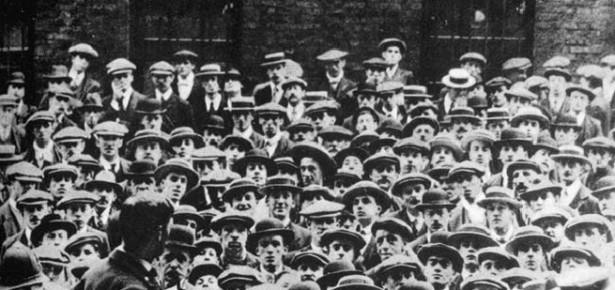
“The Great War,” yes, of 1914–18: the adjective the contemporary record applied to the event emphasizes still some monumental, colossal quality in it. For reasons that were unclear, or that changed and became even more unclear, there were 10 million dead in less than half a decade, as the major nation states of Europe and North America aligned and engaged in a conflict that mobilized, galvanized, and exhausted their resources of human, financial, intellectual, and spiritual capital. On the landscape of modern time this war stands accordingly as a landmark, a milestone or turning point. Yet the differences it supposedly locates between centuries new and old blur now as history mixes three – the twenty-first, the twentieth, the nineteenth – into the line of sight. If it is famed as a “watershed event,” that is, the horizon it defines keeps disappearing, but not into unfamiliar distances, rather into recognizable similarities. The cinema that depicts the massive battles of this first mass war presents the vistas in which we see, as it were, miniature or toy versions of ourselves: the stick-figure militia in epic perspectives, a soldiery jerking forward toward certain death with the odd bravado of mechanical dolls – the dream of the machine, the whole romance of industrial technology that enchanted the cultural imagination of the nineteenth century, all of this was concluded and grimly disproved in the awful outcomes of mass mechanized warfare. A cynicism particular to the twentieth century looks back to this Great War as its major, shaping occasion.
Never such innocence,
Never before or since,
As changed itself to past
Without a word –
In its geo-political outlines, too, subsequent history has followed the model of the specific military configuration of the conflict. The face-off situation of the two major armies on the Western Front provided the initial image, the most vividly material form, for those rival alliances that underlay the Second World War and that continued (with changes of side) through the Cold War. The many dreads of the twentieth century find their prime type and defining instance in the four years (and more) of stalemated trench warfare: the inevitable menace of that second war, approaching through the 1920s and 1930s, and then the threats of nuclear conflagration over the next fifty years. Another legacy lies in the distortions that total war enforced on the discourses of a culture, in the totalizations of view – the exaggerations that stimulated the required popular involvement, the hate campaigns, the cartoon enmities, all in all, the mechanism of oppositional thinking and the bogus extremities it effected. Gigantism is a feature equally of the political and military dimensions of mass warfare, and it scales much of the subsequent experience of the century to its intimidations, at once intimate and immense. The figure on the poster commanding recruits for the new mass armies of 1914 is the image within the image of Big Brother, insignia of a totalitarian dictatorship that represents just one later state and stage of (this first) total war.
As the First World War, then, this Great War tends to be represented by political historians as one in a series reiterating a type. No less correctly, however, and perhaps more tellingly, historians of literature tend to find a record of the novelty it constituted to contemporary sensibilities and, so, of the shock it goes on reporting. Its singularity, the difference it made, is preserved as a presentiment by British poets and novelists in particular, and even through the second half of its embattled century. Philip Larkin, one of the most representative voices in the literary culture of post-World War II England, expresses this attitude in 1960 in “MCMXIV,” which proclaims
Never such innocence,
Never before or since,
As changed itself to past
Without a word –
Larkin images this “innocence” in a poetic transcription of a familiar photograph, where a crowd of young men in London on the first Monday of August 1914 peers into a camera that stands, in effect, as ourselves – into a future whose terrible truths we know far better, or worse, than they:
These long uneven lines
Standing as patiently
As if they were stretched outside
The Oval or Villa Park,
The crowns of hats, the sun
On moustached archaic faces
Grinning as if it were all
An August bank holiday lark . . .
To read the full excerpt, click here.
Latest Comments
Have your say!